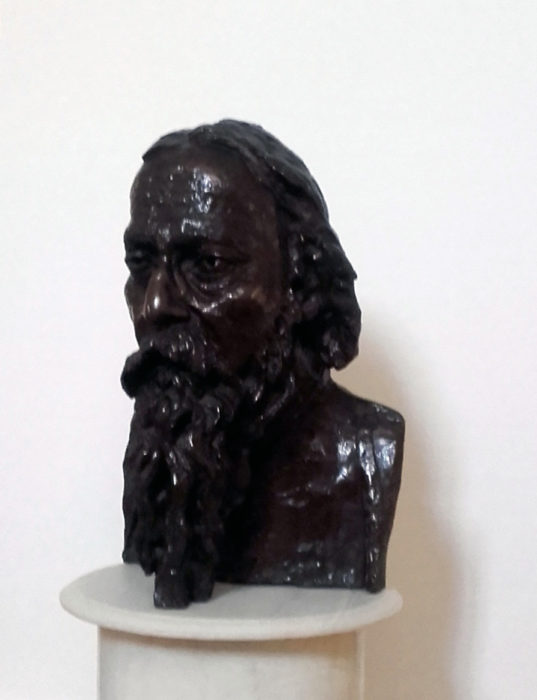16th September 2016 Kolkata, India
Another country
It is a cracking first line for a novel:
The past is a foreign country; they do things differently there.*
As a thought – that the past is somewhere different – the line sounds very appealing. The past is distant from us and we can’t access it immediately. But the idea is nonsense, of course, as metaphors often are. We can travel to, or live in, another country, but we can’t travel back in time.
However, as a literary device in reflecting back on past events, the idea has had traction. There are several works that use the very similar phrase ‘Another Country’.
Some years ago, I read a book called ‘Notes from Another Country’ by the writer Julian Symons, who mainly wrote crime fiction. This book was a memoir of his early life. I recall it was written in a very detached tone, as if Symons was exploring and looking back on his life from afar. Symons was at times critical about his younger self, at time generous in giving the benefit of the doubt, as if he were dealing with a child.
At least, I think so. I’m relying on my memory. When I went searching for the book on the internet, I thought it was by a different writer and it took a while to find it. But that’s the point about the past – it is distant and indistinct. Our memories can play tricks on us.
I’m now living in a very different country, as I explained last week. I’ve been pondering about blogging from my new home. I’m very aware that there is a lot of shared history between Britain and India. My knowledge of Indian history is from over 30 years ago, and I’m now catching up with more up to date accounts of that shared history.
I just read an editorial in one of the Indian newspapers entitled ‘Difficult Episodes’** which quoted the following:
… history cannot be rewritten, however much we might sometimes wish otherwise. It has its moments of sadness, as well as gladness. We must learn from the sadness and build on the gladness.***
That was from 20 years ago. But it is a good starting point for thinking about what I will focus on in my blog. I want to look at the partnership between our two countries, without forgetting the ‘difficult episode’.
I’ve also been thinking about focussing more on another, very different ‘country’, a place where we are travelling to: the future. This is the time in front of us, about which we can do something.
The problem is that, as one of my former language teachers used to say, we live in the present continuous. We are constantly seeking the way towards the future, but we don’t actually arrive there. But what we do today affects the world we will face tomorrow.
So, as a second element of this blog, I plan to write about what I encounter in my job, and how what I am doing, the people I meet and the things I see, might affect the world of tomorrow.
This is a rich seam: India is set to become the world’s most populous country in the near future. It is full of talented and energetic young people, and is emerging as one of the world’s major powers. What happens in India now will have ramifications in the rest of the world.
And thirdly, I want to draw on the traditions of where I live. Kolkata is in the state of West Bengal, whose government has just voted to rename the state as simply Bengal. The region underwent a ‘renaissance’ in the nineteenth and early twentieth centuries, when it was the centre of religious and social reform, scholarship and artistic expression in India.

I want to explore that tradition. I have attended one adda, a Bengali event when people meet to talk about a subject. I want to learn more about the likes of Rabindranath Tagore who was influential across the world (and whose works are the most widely translated into Chinese after Shakespeare’s, so I learnt recently). I hope that this blog can be in tune with that Bengali culture.
Like Symons (or my recollection of his book), I hope I can be detached and objective about what I write, critical when necessary, and generous when it’s merited. And if readers want to react, they can post a comment below, or take to Twitter and send a comment to me: @Bruce_Bucknell.
* The line opens L P Hartley’s 1953 novel ‘The Go Between’
** The Telegraph, 10 September 2016
*** From a speech given by Her Majesty Queen Elizabeth the Second during her 1997 visit to India.
Thank you for the welcome. I’m glad that great minds think alike!
Hi Bruce, wishing you a very warm welcome to Kolkata – India.
As a relative newcomer to Bengal, I am still learning the habits, history and nuances of this culturally rich place, it is indeed a colourful experiential journey, I’m sure you’ll enjoy it, and at times be momentarily exasperated by it (as I am), however, that’s the beauty of living and learning in unfamiliar places. I also echo your sentiments about your references to the future, I believe India will soon have the world’s largest tertiary population, and that is real potential indeed.
Thank for you such a rapid reply: we live in the present continuous including on-line!
India is a rich country, full of culture and potential, indeed.
I think your language teachers are absolutely right.